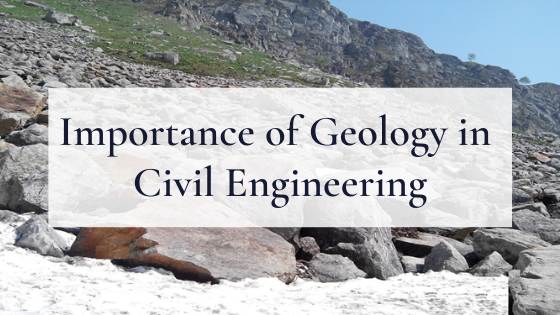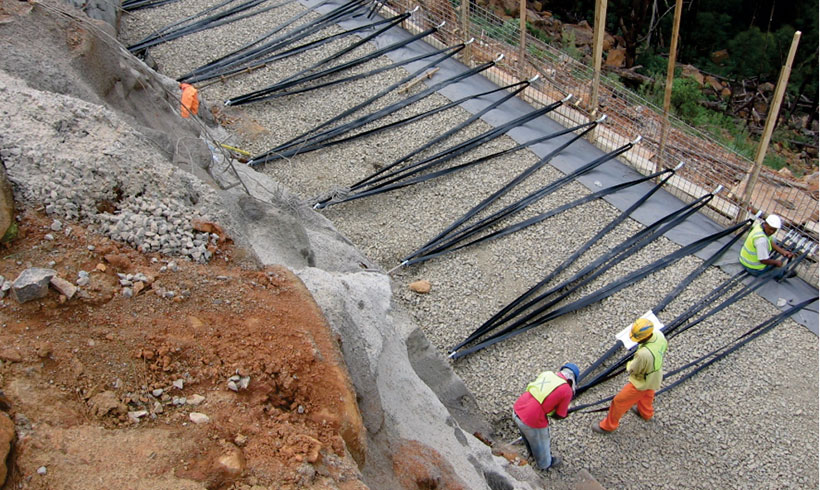The Basic Principles Of Specialized Geotechnical Engineering Solutions
The Basic Principles Of Specialized Geotechnical Engineering Solutions
Blog Article
The Buzz on Specialized Geotechnical Engineering Solutions
Table of ContentsThe Buzz on Specialized Geotechnical Engineering SolutionsGetting The Specialized Geotechnical Engineering Solutions To WorkHow Specialized Geotechnical Engineering Solutions can Save You Time, Stress, and Money.Not known Factual Statements About Specialized Geotechnical Engineering Solutions
They carry out website investigations, gather samples, do lab examinations, and examine data to assess the viability of the ground for building and construction jobs. Based on their findings, geotechnical designers supply recommendations for foundation layout, slope stability, retaining structures, and reduction of geotechnical hazards. They work together with other professionals, such as designers, structural designers, and construction groups, to make sure that geotechnical factors to consider are integrated right into the general task style and execution.
Structure Style: Geotechnical designers play a critical function in designing structures that can safely support the desired framework. They analyze the soil conditions and lots demands to identify the suitable structure type, such as superficial foundations (e.g., grounds), deep structures (e.g., stacks), or specialized strategies like soil improvement. They think about factors such as negotiation limitations, birthing ability, and soil-structure communication to establish optimal structure styles.
A Biased View of Specialized Geotechnical Engineering Solutions
Below are some kinds of geotechnical engineers: Foundation Engineer: Structure designers concentrate on developing and assessing foundations for structures - Specialized Geotechnical Engineering Solutions. They examine the soil problems, load needs, and website characteristics to figure out one of the most suitable structure kind and style, such as superficial structures, deep foundations, or specialized methods like heap structures
They carry out field screening, accumulate samples, and evaluate the gathered information to identify the soil residential properties, geologic developments, and groundwater conditions at a site. Geotechnical Instrumentation Engineer: Geotechnical instrumentation engineers concentrate on surveillance and gauging the behavior of soil, rock, and structures. They set up and preserve instrumentation systems that keep an eye on variables such as dirt negotiation, groundwater degrees, incline movements, and structural displacements to assess performance and offer early warnings of prospective problems.
In the office atmosphere, geotechnical engineers use specialized software application tools to perform calculations, create designs, and evaluate information. Specialized Geotechnical Engineering Solutions. They prepare reports, review project requirements, interact with clients and team participants, and coordinate task activities. The workplace setup gives a helpful environment for research, analysis, and cooperation with various other experts involved in the task
They often see project sites to conduct site investigations, assess geotechnical problems, and gather information for evaluation. These gos to involve taking a trip to various areas, often in web remote or tough terrains. Geotechnical designers may execute soil sampling, conduct examinations, and monitor building and construction activities to make certain that the geotechnical elements of the task are being implemented appropriately.
Indicators on Specialized Geotechnical Engineering Solutions You Need To Know
Geotechnical designers likewise work in specialized geotechnical research laboratories. In these facilities, they carry out experiments, carry out examinations on soil and rock samples, and evaluate the engineering properties of the materials. Geotechnical laboratory engineers work extensively in these atmospheres, handling screening devices, running tools, and taping information. They collaborate with various other lab team to ensure exact and dependable screening results.
Retaining Wall surfaces: Developing wall surfaces that keep back dirt to prevent landslides and provide stability on sloped terrains. Embankments and Earthworks: Designing embankments for roads, railways, and dams to ensure they remain stable under stress. Specialized Geotechnical Engineering Solutions The mining industry relies heavily on geotechnical engineering to ensure the safety and longevity of its procedures.
With this in mind, we have made our program to prepare trainees for success. Geotechnical engineers are included in all phases of the style of frameworks, from idea to construction. Their job is essential in the layout and planning procedure as they assess the stability of dirt, clay, silt, sand, and rock, prior to building starting.
The 2-Minute Rule for Specialized Geotechnical Engineering Solutions
This is complied with by a ground investigation based on the findings of the desk study and involves trial pitting and sampling to reveal any kind of possible concerns. Geotechnical designers function within multidisciplinary groups, supported by intermediate and younger engineers as well as by CAD specialists. As a senior geotechnical engineer on a hydro plant project, jobs might consist of taking part in technical reviews (e.g., peer testimonials), tailings dam evaluations, dam safety and security reviews, and other researches related to the style and construction of mine waste facilities.
While some experts specialise only in geotechnics, others might work under titles like design rock hound or ground designer within comparable capabilities. As a geotechnical designer, you'll need to: develop and keep relationships with clients and other specialists entailed in the website, throughout each projectmaintain security standards on site bear in mind cost effects when you make recommendationsstudy geological maps and aerial photographs from a series of sources and from different time periodsexamine building and construction intends to see just how practical they are based upon your understanding of the siteinvestigate dangers or geological hazards for the sitesearch for ecologically sensitive attributes, such as landfill beginning to create factual and expository ground modelsplan field investigationsdrill and evaluate examples of bedrock, dirt, groundwater and extra materials supervise various other professionals on sitesolve technical problems as they arise, such as unanticipated frameworks at drill sitesmonitor conditions throughout and after building and construction to make certain frameworks are secure in about his the short and long termadd data accumulated on site to your first researchcreate geotechnical computations, illustrations, and two or three-dimensional computer system versions interpreting the datamake referrals about the suggested use the site.
There are great deals of opportunities to fulfill new people, as you'll deal with an array of professionals at every site. The work can be difficult as you might be in charge of the security of others while on website. There is additionally a high degree of financial responsibility, as the suggestions you make can have significant cost implications.

Report this page